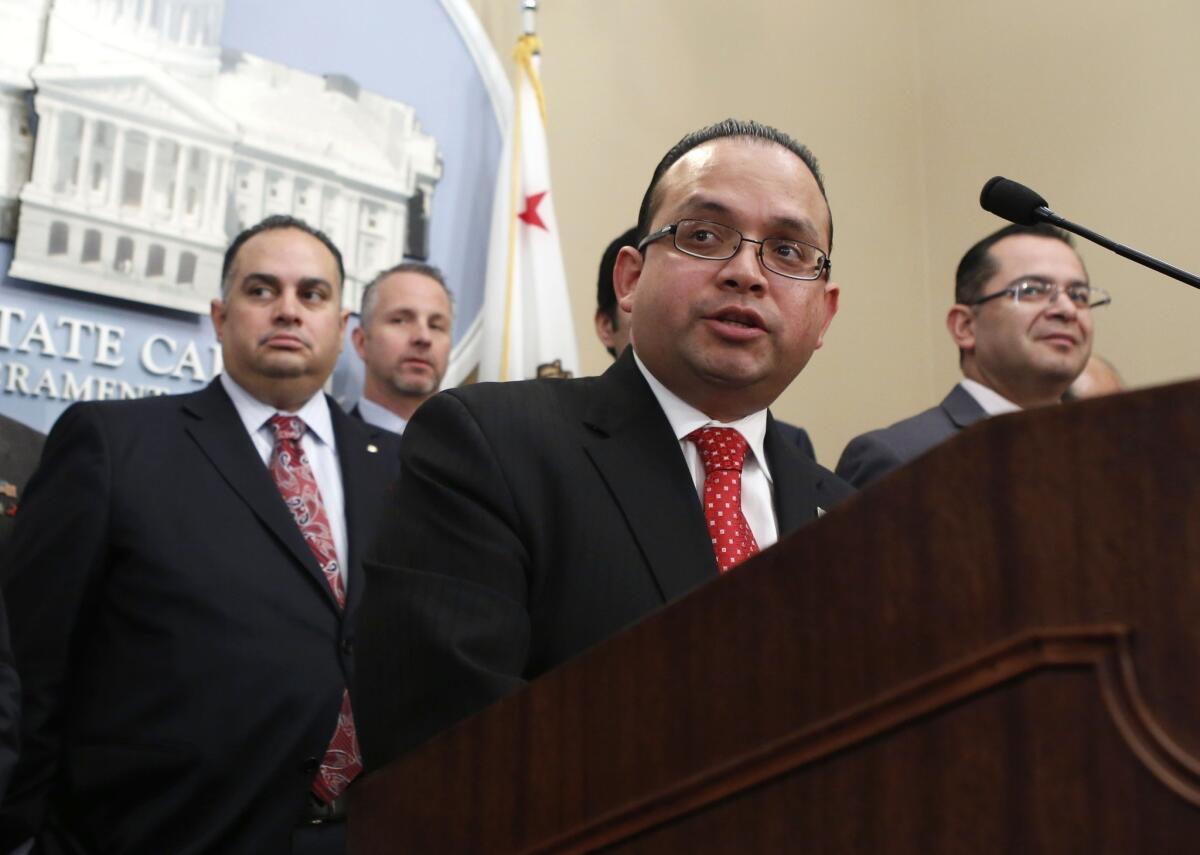Minimum-wage bill could harm California economy, trade group says

- Share via
Proposed legislation to raise the state minimum wage could eliminate tens of thousands of jobs and harm the California economy, a small-business advocacy group said.
The measure, AB 10, could wipe out more than 68,000 jobs over 10 years and cost $5.7 billion in lost production of goods and services, according to a study released Tuesday by the National Federation of Independent Business.
More than 63% of the lost jobs would be in the small-business sector, NFIB researchers said.
The bill, introduced in December by Assemblyman Luis Alejo (D-Salinas), would increase the minimum hourly wage to $8.25 in 2014 from $8 now. The legislation would further increase it to $8.75 in 2015 and $9.25 in 2016.
In 2017 and annually thereafter, the minimum wage would be adjusted to keep up with inflation.
Raising the minimum wage would force business owners to reduce jobs and hours, hurting low-skilled and entry-level workers vying for low-paying jobs, said John Kabateck, executive director of NFIB/California.
“A minimum wage increase is truly the law of unintended consequences because it will hurt the people it was designed to help,” Kabateck said. “There is a perception that small-business owners can wave a magic wand and make money appear in the till; in California that is simply not the case.”
If the measure passes, small businesses would face increased pressure to raise wages for non-minimum-wage employees, a cost that would be passed on to customers, he said.
Sylvia A. Allegretto, an economist with UC Berkeley’s Institute for Research on Labor and Employment, said she doesn’t believe jobs would be lost because of AB 10.
“California has many problems, that low-wage workers are paid too much is not one of them — that they are paid too little is,” Allegretto said.
Alejo said a minimum wage hike is needed because the gap between California’s upper- and lower-income residents is one of the widest in the country.
“The purchasing power of minimum-wage workers declines on an annual basis while the cost of goods and services have increased every year,” Alejo said.
Hiking the minimum wage wouldn’t eliminate low-paying jobs in the short or long-term, he added, and would stimulate consumer spending.
David Houston, an NFIB member and owner of L.A.-area restaurant chain Barney’s Beanery, said his business would feel the squeeze.
“It’s bad timing, and, again, what can we do?” Houston said. “Look to cut staff somewhere.”
More to Read
Inside the business of entertainment
The Wide Shot brings you news, analysis and insights on everything from streaming wars to production — and what it all means for the future.
You may occasionally receive promotional content from the Los Angeles Times.











